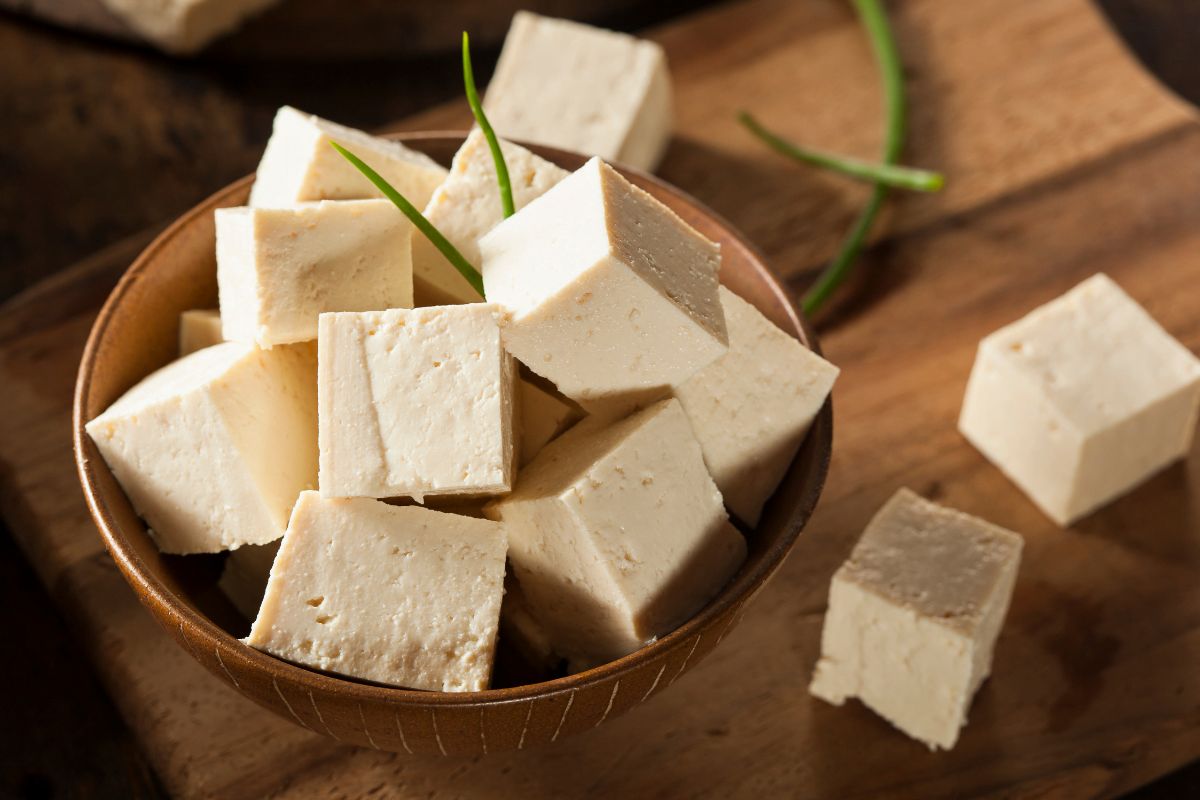Living with diabetes often means making careful food choices to manage blood sugar levels and maintain overall health. Among the many dietary options available, tofu is a particularly beneficial superfood for diabetes management. Living with Diabetes
This article will explore why tofu suits people with diabetes, dispel myths about its potential downsides, and provide practical tips and recipes for incorporating this versatile food into your daily diet.
The Benefits of Tofu for Diabetics
Tofu is a highly nutritious food that can be an excellent addition to someone’s diet with diabetes. Tofu, made from soybeans, is high in protein and low in calories, and contains good healthy fats. Additionally, tofu contains essential nutrients like iron, calcium, and magnesium. These nutrients can contribute to overall health and prevent complications associated with diabetes.
Contrary to some misconceptions, tofu is not sour for people with diabetes. It is considered a diabetes-friendly food due to its low glycemic index (GI), which does not cause rapid spikes in blood sugar levels. Tofu is also low in carbohydrates, making it an excellent option for those looking to manage their carbohydrate intake. Moreover, its high protein content can help keep you full longer, reducing the likelihood of overeating or snacking on less healthy options.
Is Tofu Good for Diabetics?
Yes, people with diabetes can eat tofu. Including tofu in your diet can provide numerous health benefits, including better blood sugar management and better heart health. The protein and healthy fats in tofu help regulate blood sugar levels and give a consistent energy source. Additionally, tofu can be a versatile ingredient in various meals, making it easier to incorporate into a balanced and varied diet.
Cooking Tofu for Optimal Diabetes Management
Cooking tofu for diabetics can be simple and delicious. To get the best results, press the tofu to remove excess water. This will help it absorb flavors better and achieve a firmer texture. You can then marinate the tofu in a mixture of low-sodium soy sauce, garlic, ginger, and olive oil for added flavor. Tofu can be baked, grilled, stir-fried, or added to soups and stews. Avoid deep-frying tofu, as this can add unnecessary calories and unhealthy fats.
Delicious Tofu Recipes for Diabetics
Here are a few easy and tasty tofu recipes for people with diabetes:
Grilled Tofu Salad:
A refreshing and nutritious option featuring marinated and grilled tofu served over a bed of fresh mixed greens, cherry tomatoes, and cucumber, topped with a light dressing.
Tofu Stir-Fry:
It is a quick and flavorful dish combining tofu with colorful vegetables, enhanced with aromatic ginger, garlic, and sesame oil.
Tofu and Vegetable Soup:
A comforting soup with tofu and various vegetables simmered in a savory broth, perfect for a warm and satisfying meal.
Frequently Asked Questions (FAQs)
Are there any specific types of tofu that are best for people with diabetes?
For people with diabetes, firm or extra-firm tofu is generally recommended because it holds its shape well during cooking and has a higher protein content. Silken tofu is softer and can be used in smoothies, dressings, and desserts, but it may not be ideal for stir-frying or grilling due to its texture.
How often should people with diabetes include tofu in their diet?
Incorporating tofu into a diet a few times a week can benefit people with diabetes. It’s essential to maintain a balanced diet and include a variety of protein sources. Aim for at least 2-3 servings of tofu per week as part of a diverse diet high in veggies, whole grains, and lean protein.
Can tofu be included in a low-carb diet for diabetics?
Yes, tofu is an excellent choice for a low-carb diet. With its minimal carbohydrate content and high protein levels, tofu fits nicely into a low-carb diet. It can be used in low-carb recipes, from salads and stir-fries to soups and casseroles.
How does tofu compare to other plant-based proteins for people with diabetes?
Tofu is among the best plant-based proteins for people with diabetes due to its complete protein profile, low glycemic index, and nutrient density. Compared to other plant-based proteins like lentils, beans, or chickpeas, tofu has a lower carbohydrate content and is easier to incorporate into a wide range of dishes.
Doctor’s Recommendation
The consumption of tofu is a great food for diabetics as it is minimal in carbohydrate content and glycemic index while being high in protein which is helpful for weight loss and regaining insulin sensitivity. It may be the case that tofu is a better food for females than it is for males for the full benefit.



